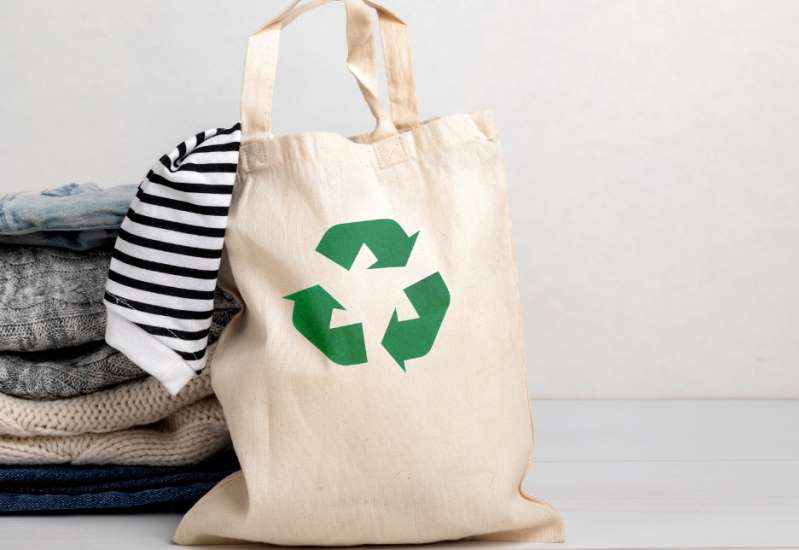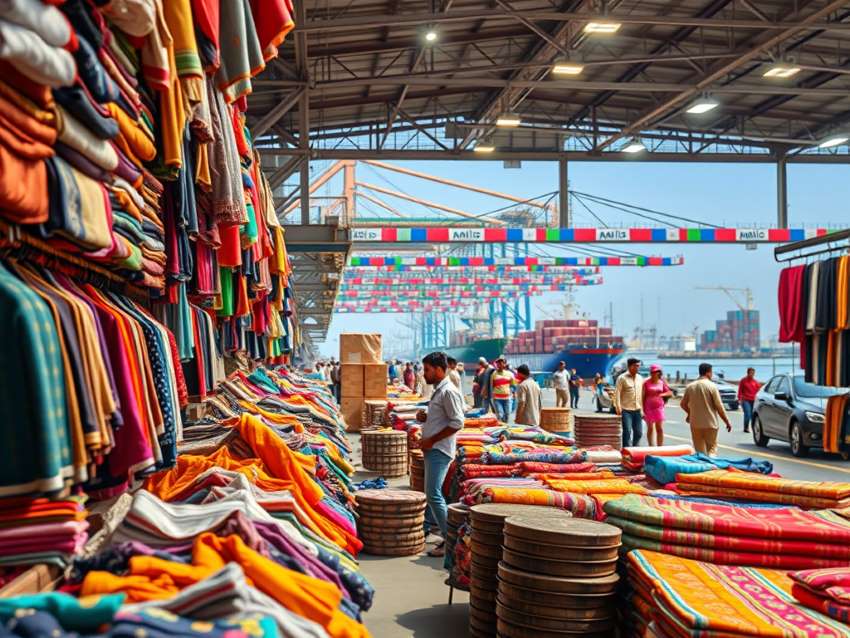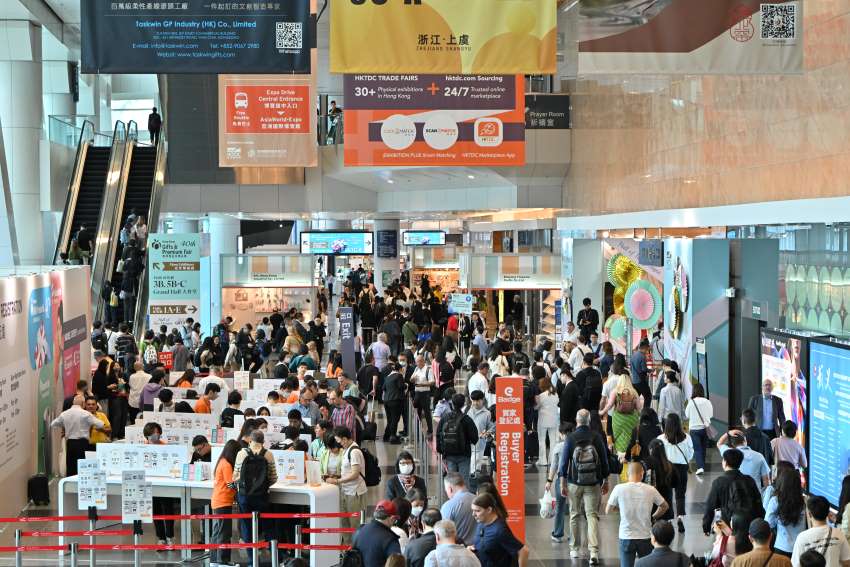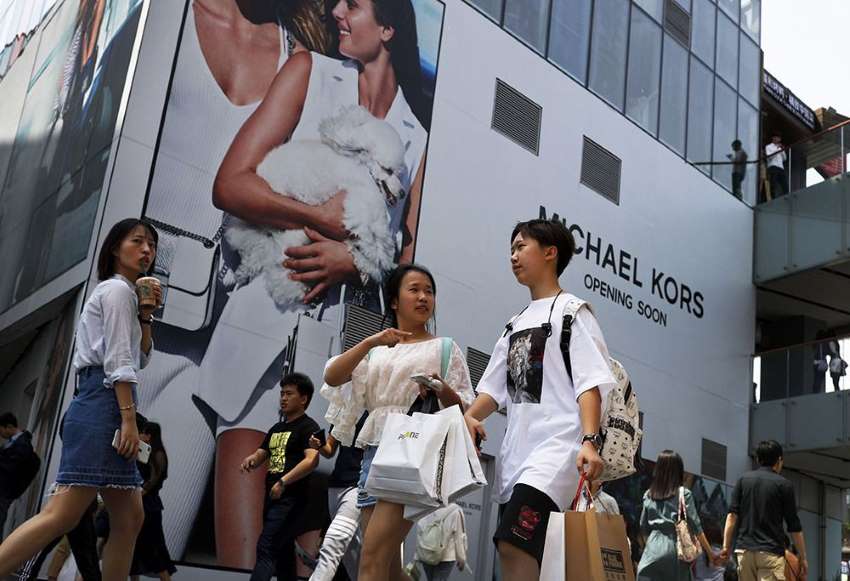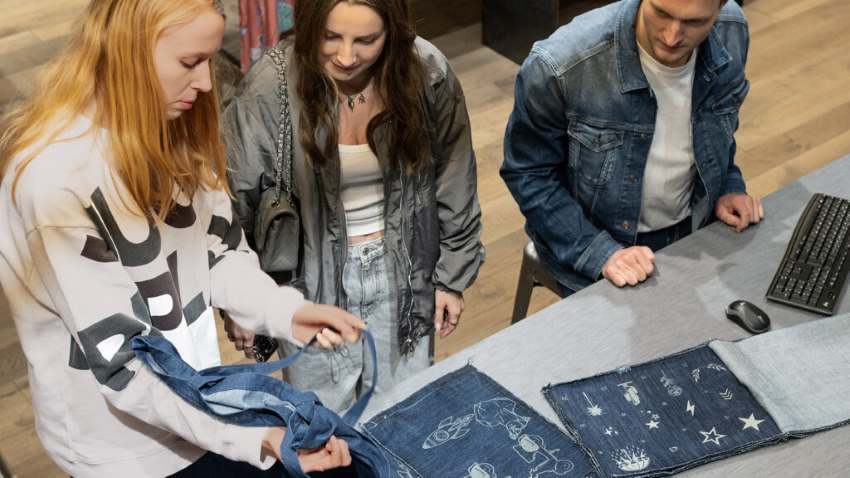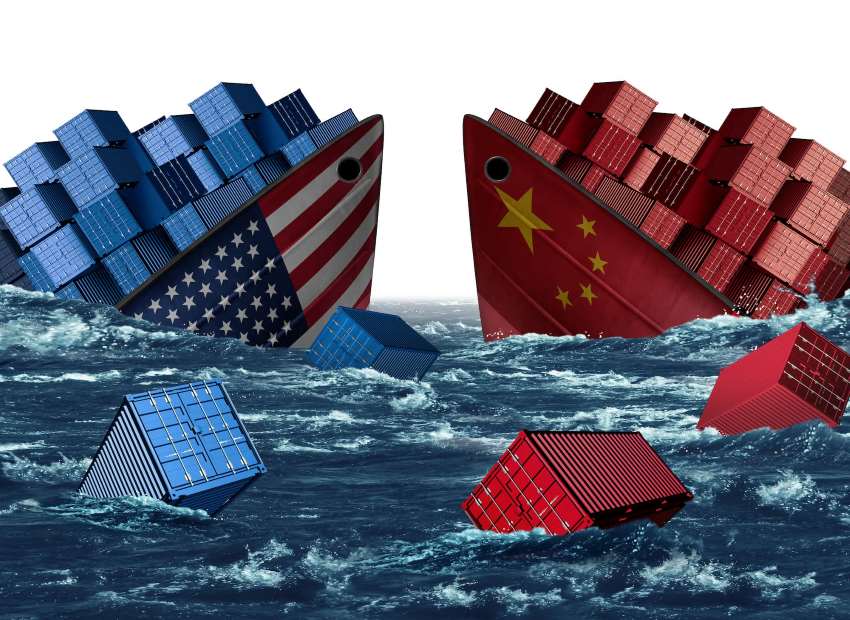FW
As a part of its ongoing comprehensive reogranisation of the company’s operations, Hong Kong-based Esprit Holdings has filed for insolvency of its Belgium subsidiary, Esprit Belgie Retail (BEBR).
A wholly-owned subsidiary primarily involved in retailing apparel and accessories, BEBR filed for the insolvency in a Belgian court, resulting in the closure of all its stores.
The company attributed its decision to various challenges including economic slowdown, significant increases in energy and logistics costs, negative consumer sentiment in Europe, and the burden of high legacy rents. As of December 31, 2022, BEBR reported total assets of HK$88.9 million (US$11.3 million) and total liabilities of HK$80 million (US$10.2 million).
To deal with these challenges, Esprit aims to partner with wholesale and franchise entities besides revitalising its e-commerce initiatives. The company reported a net loss of $300 million for FY23, accompanied by a 16 per cent decrease in revenue. However, it is actively strategising to navigate these challenges and position itself for future growth.

Fashion buyers are actively exploring new sourcing destinations that offer a combination of ethical production, unique materials, and cost-effectiveness. Fashion buyers are increasingly looking beyond traditional sourcing hubs like China and India for their garment needs. This shift is driven by a desire for greater supply chain resilience with ethical production practices.
Emerging markets gain traction
Market is witnessing a rise in interest from buyers for products from countries like Ethiopia, Madagascar, and Nepal. These emerging markets offer potential for ethical production and unique materials. Additionally, trade agreements can make sourcing from these destinations cost-effective.
Central Europe emerges as a "Super Interesting" option
Beyond Asia, Central European nations like Poland are attracting attention from UK buyers seeking geographically closer options. This trend is fueled by ongoing supply chain disruptions and a desire for shorter lead times.
Recycled fabrics gaining momentum
The fashion industry's growing focus on sustainability is reflected in the increasing use of recycled fabrics by suppliers. Exhibitions are seeing a significant rise in exhibitors showcasing recycled materials like cashmere and cotton, indicating a potential shift led by manufacturers themselves.
Buyers seek transparency
With ethical sourcing becoming a priority, buyers are demanding greater transparency from suppliers. This trend is likely to lead to a future where clear labeling of recycled content becomes the norm.
Fashion innovator PlatformE achieves B Corp certification, marking a pivotal moment in its commitment to sustainability and ethical business practices. This certification underscores PlatformE's dedication to leveraging its influence for positive change.
Luís Cabral, Head of Finance and People, emphasizes the transformative power of strategic product development, shaping the fashion landscape while promoting environmental consciousness.
As a Certified B Corporation, PlatformE joins a global cohort of companies dedicated to societal and environmental well-being, prioritizing people and planet alongside profit.
PlatformE pledges to inspire others in the fashion and technology sectors to embrace sustainability and social impact, fostering collaboration and innovation.
Looking ahead, PlatformE reaffirms its leadership in fashion innovation, aiming to revolutionize production and consumption practices while upholding the highest standards of environmental stewardship and corporate transparency.
This milestone highlights the fashion industry's growing recognition of the importance of responsible business practices in shaping a more equitable and sustainable future.
Kraig Biocraft Laboratories, Inc. has entered an agreement with the Vietnam Sericulture Association (VSA), marking a significant leap forward for the company's production ambitions. The agreement, disclosed today, unveils Kraig Labs' production plans for the next twenty-four months to the VSA, fostering a collaborative effort aimed at meeting production targets.
Central to the agreement is the VSA's commitment to aid Kraig Labs in securing formal intellectual property registration of its BAM-1 hybrid silkworm strain in Vietnam, reinforcing the partnership established in the Memorandum of Understanding earlier this year.
"This agreement signifies years of concerted efforts with various agencies to showcase our technology and its potential," stated Kim K. Thompson, Founder and CEO of Kraig Biocraft Laboratories. Thompson emphasized the strategic significance of the partnership with the VSA in advancing production goals and strengthening the company's foothold in Southeast Asia.
Le Quang Tu, President of the Vietnamese Sericulture Association, expressed optimism about the collaboration, citing Kraig's technology as a potential game-changer for the industry.
With CEO Kim K. Thompson on-site in Vietnam to oversee operations, Kraig Labs anticipates forthcoming updates on its accelerating progress in the weeks ahead. This landmark agreement underscores the company's commitment to innovation and strategic partnerships in revolutionizing the sericulture industry.
Alchemie Technology, a trailblazer in clean digital textile dyeing based in Cambridge, unveils its inaugural in-market production and demonstration facility in Nantou, Taiwan, solely dedicated to woven polyester. The launch of Alchemie’s Endeavour low carbon digital textile dyeing process sets a new benchmark, challenging conventional practices in the industry.
This technology heralds significant sustainability advantages over traditional methods. The transition from wet dyeing to dry processing slashes carbon emissions by up to 85 per cent and reduces wastewater by an impressive 95 per cent. Amid mounting concerns over the environmental impact of textile dyeing, Alchemie's innovation represents a pivotal shift towards eco-friendly practices.
The global textile industry stands as a major contributor to carbon emissions, with projections indicating a potential surge to 2.5 gigatons by 2050. Alchemie's initiative aligns with the imperative to achieve net-zero emissions by 2050 to avert catastrophic climate change. Additionally, as a leading contributor to industrial wastewater discharge, the textile sector underscores the urgency for sustainable solutions.
The inauguration of Alchemie's facility in Taiwan marks a crucial milestone in its 2024 roadmap, focusing initially on polyester woven fabrics with plans for expansion into other materials. Alan Hudd, Founder and CEO of Alchemie Technology, emphasizes the pressing need for action within the fashion industry, which accounts for a staggering 3 per cent of global emissions.
At the heart of Alchemie’s innovation lies its patented digitally controlled piezoelectric nozzle, ensuring unparalleled precision and efficiency. This technology not only enhances business prospects but also delivers tangible environmental benefits, fostering partnerships with industry leaders committed to sustainability. Alchemie's endeavor marks a significant leap towards a greener future in textile production.
In a landmark development for West Bengal's textile industry, Credo Centre of Excellence has joined forces with the government's Apparel Skill Council to inaugurate India's premier fashion incubation center in Kolkata. Endorsed by the Ministry of Skill Development and Entrepreneurship, this pioneering public-private partnership seeks to bridge skill deficiencies and cultivate entrepreneurial ventures in the apparel, home furnishing, and related sectors.
Pinaki Roychowdhury, trustee of Credo Foundation, hailed the initiative as the country's foremost fashion incubator and the first of its kind under a public-private model sanctioned by the Apparel Made Ups Home Furnishing Sector Skill Council (AMHSSC). The Kolkata hub aims to offer comprehensive support surpassing basic tailoring centers found elsewhere.
Despite a robust MSME garment manufacturing presence, West Bengal struggles with export performance due to outdated design, manufacturing, and supply chain capacities. The incubation center intends to empower entrepreneurs with essential skills in design, production, and market access over a span of 2-4 years, fostering growth until they achieve operational scale.
AMHSSC Chairman, Padmashree A Sakthivel, emphasized the center's mission to stimulate innovation and address skill gaps crucial for workforce success. Dominic Savio, Principal of St. Xavier's College, commended Credo's innovative blend of online and offline training, integrating theory with practical industry exposure.
With cutting-edge facilities and mentorship, the incubator is poised to revolutionize entrepreneurship and technological advancement within West Bengal's pivotal textile economy.
A report by Textiles Intelligence underscores the urgent need for the apparel sector to champion the development of a robust fibre-to-fibre recycled PET polyester industry. Predictions indicate that polyester will dominate more than half of global fibre production by 2030, maintaining its stronghold despite rising popularity in alternative fibres.
Key findings emphasize the exponential growth expected in polyester production, projected to exceed 80 million tonnes by 2030. To meet this escalating demand sustainably, the report advocates for the expansion of fibre-to-fibre PET polyester recycling (FFrPET) initiatives.
Major players are already taking strides in this direction. Eastman, a leading material innovation company, is investing in recycling plants utilizing methanolysis, with plans to triple its capacity by 2026. Similarly, Suez and SK Geo Centric are collaborating on a PET plastic and fibre recycling plant in France, leveraging Loop Industries technology to produce high-value materials.
Indorama and Carbios are pioneering enzymatic bio-recycling production plants, while Andritz Group is spearheading multiple recycling projects in France. Notably, Inditex has forged a strategic alliance with Ambercycle to establish a commercial-scale textile regeneration factory, committing to substantial annual purchases of regenerated polyester fibres.
These initiatives mark a pivotal shift towards circularity in the textile and apparel industry, aligning with escalating consumer demands for sustainability. The concerted efforts of industry giants underscore a collective commitment to mitigate environmental impact while meeting the burgeoning demand for polyester. As the sector steers towards a circular economy model, collaborative innovation remains paramount in realizing a sustainable future for fashion.
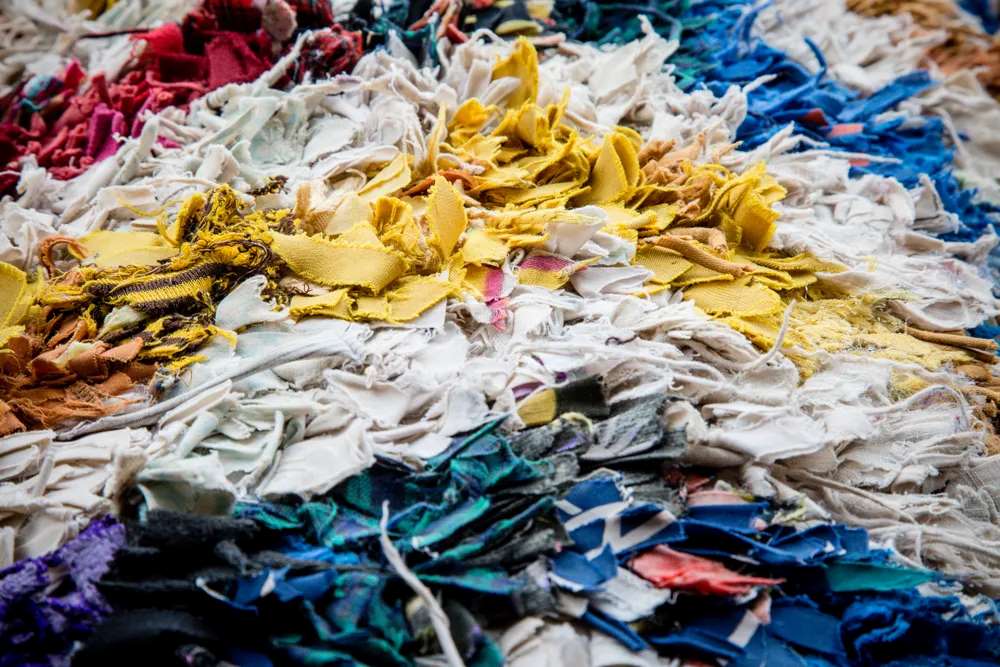
In a collaboration, Wazir Advisors, The Swedish School of Textiles - University of Boras, and the IIT, Delhi, have jointly released a whitepaper today. Titled ‘Positioning Indian Textile Recycling Ecosystem Globally: Setting the Strategic Intervention Areas for Future Road Mapping,’ the document signals a pivotal moment in the evolution of India's textile industry.
At its core, the whitepaper endeavors to catalyze a cross-border textile recycling value chain, harmonize market dynamics, and stimulate innovation through public-private partnerships. It delves into four critical dimensions imperative for the expansion of textile recycling ecosystems: optimizing value chains, synchronizing supply with market needs, designing sustainable ecosystems, and securing external support for equitable participation across the value chain.
A highlight of the report is the identification of 13 Strategic Intervention Areas (SIAs) deemed essential for the enhancement and valorization of India's textile recycling ecosystem. Authors including Rudrajeet Pal, Abhijit Majumdar, and Varun Vaid, emphasize the whitepaper's role in fostering collaboration and innovation to drive both economic prosperity and environmental sustainability.
Based on extensive research and fieldwork initiated in 2016 at The Swedish School of Textiles, the report draws insights from investigations in regions like Kandla SEZ and Panipat. Notably, the authors express optimism about ongoing strategic interventions, with grants from Indo-Swedish funding agencies. They anticipate the development of a data-driven decision support tool, poised to streamline operations within the intricate textile recycling value chain, benefiting both industry players and policymakers alike.
At the 41st annual general meeting in Dhaka, the Bangladesh Garment Manufacturers and Exporters Association (BGMEA) appointed certain new members to its board of directors. Prominent amongst these is the appointment of SM Mannan Kochi as the new president for the term 2024-2026.
President Kochi is joined by a prominent team including Syed Nazrul Islam as the first Vice President of the association, Khandoker Rafiqul Islam as Senior Vice-President, and Arshad Jamal Dipu, Md Nasir Uddin, Miran Ali, Abdullah Hil Rakib, and Rakibul Alam Chowdhury as Vice Presidents. This dynamic leadership is poised to drive the garment industry towards further growth and innovation.
The restructuring extended to include directors from Dhaka and Chittagong. Noteworthy members from Dhaka include Shahidullah Azim, Asif Ashraf, and Shovon Islam, while Chittagong is represented by figures such as Mohammed Musa and Amzad Hossain Chowdhury.
The consolidation of the leadership under the Sammilito Parishad underscores a unified vision for the industry's advancement. Kochi’s appointment marks a pivotal moment as he succeeds Faruque Hassan, taking on the responsibility to maintain the association's legacy of excellence and service.
The outgoing board facilitated a smooth transition, ensuring continuity and efficiency in BGMEA's operations. At the AGM, critical matters such as the adoption of audited accounts for 2022-2023 and the approval of the budget for 2023-2024 were addressed, reflecting the board's commitment to fiscal responsibility and transparency, crucial for sustaining the industry's competitiveness.
India’s cotton production is likely to decline by 2 per cent to 25.4 million bales of 480 Ib during the 2024-25 period, predicts Foreign Agricultural Service (FAS) by USDA.
Farmers are likely to divert their attention from cotton to crops like pulses, maize, and paddy due to their potentially higher returns, impacting cotton production.
The projected area under cotton cultivation is expected to decline to 12.4 million during this period. However, cotton yields are expected to rise by 2 per cent to reach 446 kilograms per hectare in the upcoming season.
Cotton consumption is also set to increase by 2 per cent compared to the previous year, reaching 24.5 million bales of 480 lb.
Cotton exports for 2024-25 are projected to hit 2.4 million bales of 480 lb, backed by higher carryover stocks and a depreciating rupee. The first six months of 2023-24 witnessed a significant rebound in exports of value-added cotton products, particularly cotton yarn and fabric, signaling resurgence in mill consumption.
With the removal of import duty on extra-long staple (ELS) cotton, imports are expected to rise by 20 per cent to 2.4 million bales of 480 lb.


